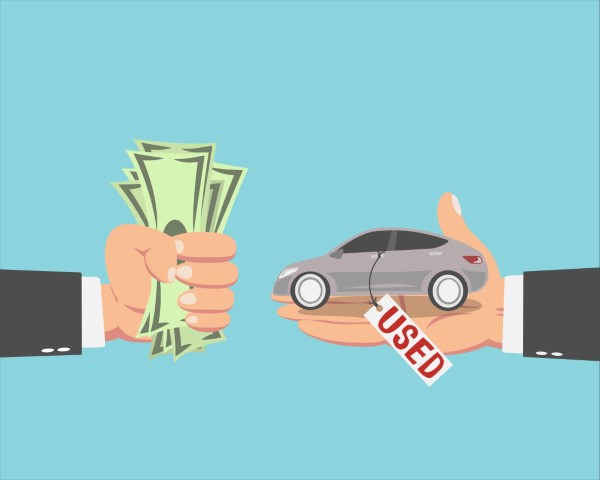 Experts agree that the key to saving money when purchasing a car is to Buying A Used Car rather than a new vehicle. Although more maintenance may be required on used cars and their financing can be a bit expensive, going with a preloved car is said to be still worth it.
Experts agree that the key to saving money when purchasing a car is to Buying A Used Car rather than a new vehicle. Although more maintenance may be required on used cars and their financing can be a bit expensive, going with a preloved car is said to be still worth it.
Unfortunately, buying used cars in the United States can be more complex than purchasing a new car. It’s riskier because you can’t take advantage of the manufacturer’s warranty. However, there’s nothing to worry about if you’re armed with knowledge about your preferred used cars.
If you’re worried about the used vehicle’s potential hidden problems, buying certified pre-owned cars might be an excellent option for you. Not only will you save money by purchasing a used car, but you’ll also gain confidence in the vehicle’s reliability. When searching for certified used cars in Washington, it’s better to look for a reliable dealership similar to Walla Walla Toyota to ensure a seamless car buying process.
If you’re unsure about where to start, read the guide below to make the car buying process easier and a rewarding experience.
- Research Your Options
Before searching for used cars for sale and reaching out to dealerships or sellers, make sure to do your homework first. Research the used vehicle model you wish to purchase and its current price range on different websites.
It may also come in handy to research on social media platforms. Most dealers have social media accounts, similar to Walla Walla Toyota Facebook page, where they share helpful information about the different available used cars in the market.
As you do your research, compare your preferred cars with your budget in mind. Check the variant, model, and other essential specifications like safety features. This way, you’ll be able to filter your options and stick to the vehicle you want or need.
You may also read used car reviews to know more about the vehicle’s reliability. If you’re confused with the options, never hesitate to ask for leads and pointers from your colleagues or friends who have purchased used cars in the past.
- Set A Budget
One of the first things you should consider when buying a used car is setting a budget. Once you visit a car lot, it’s easy to get carried away, mainly if you’re a young and new driver who’s confused between new and used car options. So, plan your budget before seeing used cars in person.
The golden rule is to determine how much you want to pay yearly on car payments and divide them into monthly payments. The amount must represent around 10% to 15% of your annual income.
You might also want to determine if you need to take a loan to pay for the vehicle or if you can pay in full. Remember that you should have an emergency fund if you suddenly lose your job. Plus, you must consider the extra expenses of tax, repairs, registration, monthly car insurance rates, and title.
- Select Your Car Type
Different people need various things from their preferred vehicles. These days, cars vary widely in size and shape. In fact, distinctions have become more blurred due to the introduction of other car sub-categories, like sub-compact sport utility vehicles (SUVs) and crossovers, a cross between SUVs and sedans.
When shopping around, choose a vehicle you need most of the time. Avoid buying a used car that’s too big for your family or personal needs. If necessary, look for a vehicle that meets your daily needs and allows you to enjoy savings on fuel and maintenance.
- Check The Paperwork Thoroughly
No matter where you plan to buy a used car, it’s critical to check the paperwork thoroughly. If you’re purchasing from a private individual instead of a dealer, check if the listed keeper sells the vehicle from the address stated in the logbook. If possible, check the chassis number and other important details on the vehicle’s logbook registration.
After that, you need to check the following:
- Sales receipts that prove ownership;
- Finance agreements; and
- Service record discrepancies.
- Don’t Skip Doing A Test Drive
Sometimes, reading the description of a used car online isn’t enough to get what you want. If you have time, spend it on checking the car personally and talk to the seller or dealer face-to-face. Ask if the vehicle has any records of accidents or repairs such as engine overhauls, transmission rebuilds, or valve jobs.
If the used car passes your visual inspection, the next thing you should do is to test drive it. Insist on driving the used car for a test. If the dealer or seller refuses a test drive, look for other options. Besides, you don’t want to waste your money on an inexpensive car that’ll only cause you more headaches over time.
- Perform A Thorough Inspection
Inspection is among the most significant considerations in a preloved vehicle purchase. It’s critical to bring a reliable mechanic with you once you purchase a used car. Not only will these professionals pinpoint if the vehicle’s worth buying, but they may also help you save more money on maintenance costs and repairs.
As you inspect the used car, keep the following things in mind:
- Check for signs of repainting or gaps between panels because they can signify a previous accident.
- Check worn-out treads on the tires to know whether or not the car has been used often.
- Start the car when the engine is cold. It’ll help you spot potential issues, like starting difficulties.
- Check for signs of oil leaks.
- Do the inspection in broad daylight to see dents, scratches, and rust quickly.
- Negotiate A Fair Price
Whether you’re purchasing from a private seller or a used car dealership, be wary of the too-good-to-be-true offers and never hesitate to walk away from any suspicious deals. If necessary, negotiate a fair price to get a good deal.
When negotiating the price of your preferred used vehicle, you must arm yourself with solid information as a basis for your negotiations. To do this, search the current market value and how much people pay for used cars. The current pricing information will give you confidence, allowing you to negotiate effectively.
Another way to negotiate when buying a used car is to make a counteroffer. If the salesperson’s price for the used car is high, don’t walk away and prompt a better offer instead. For example, you can raise your opening offer in small increments.
When dealing with a private seller, be firm with your counteroffer and leave your contact details. Typically, upon reflection, sellers accept counteroffers. You may also sweeten your deal without raising your offer by pointing out a particular problem with the car. For instance, you can point out that the vehicle’s registration fees will be due soon, and you’ll have to pay such fees once you purchase the car.
Mistakes To Avoid When Buying A Used Car
You can save a tremendous amount of money from buying a used vehicle. While it allows you to enjoy savings, a used car may have potential issues due to regular wear and tear. So, it’s crucial to avoid these errors when you’re shopping around for used cars:
- Making A Decision Based On Looks
Before you start searching for a used car, whether offline or online, it’s crucial to evaluate what you need from your preferred vehicle.
For example, avoid wasting time looking at trucks if you like a commuter car. If you’re searching for a vehicle that can tow a trailer, don’t spend your precious time checking out sports cars.
Therefore, never make a decision based on looks and focus on your needs. If you know your needs, you’ll avoid making an impulse purchase.
- Not Prioritizing Financing Before Shopping
Before you buy a used car, whether it’s through a private seller or a dealer, you need to consider financing to determine how you’ll pay for it. This is especially true if you can’t pay for the vehicle in full.
Prioritizing financing before shopping lets you understand the maximum limit of your price range. Besides, knowing how much you can afford will help you negotiate a better deal.
If you’re purchasing from a dealership, you can take their offer. Nevertheless, dealership financing is similar to a wholesale insurance offer, which adds in more interest rates. You can avoid this by shopping around because other lenders may offer you various rates.
Ensure that you have your approval in hand before shopping for your vehicle. This will help you stay within your budget. You can use a car loan calculator to help determine what interest rate and loan term fit your budget.
- Not Getting A Second Opinion
No matter what type of vehicle you’re planning to buy, it’s easy to be blinded by your desires, and it’s common for first-time buyers. So, before finalizing everything and making a well-informed decision, ask someone to help you review your used car buying transaction. They might pinpoint something you haven’t noticed, allowing you to save more in the long run.
- Not Checking The Vehicle History Report
Aside from performing a test drive and having a car inspected by a professional mechanic, it’s crucial to check the vehicle history report. This will help you know more about the vehicle’s previous owners, prior accidents, and other problems.
Final Thoughts
Buying a used car may seem tedious and complicated, but it doesn’t have to be if you know your options and do your due diligence. So, take note of the guide above and learn how to buy a used car you’ll be proud to call your own, regardless of your needs or preferences.










